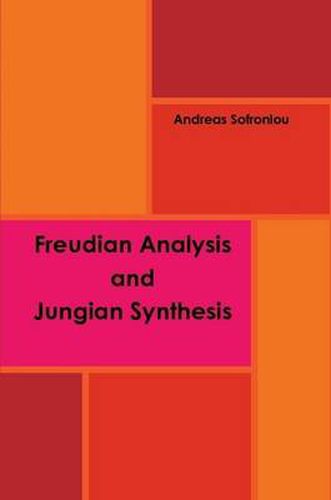Readings Newsletter
Become a Readings Member to make your shopping experience even easier.
Sign in or sign up for free!
You’re not far away from qualifying for FREE standard shipping within Australia
You’ve qualified for FREE standard shipping within Australia
The cart is loading…






This title is printed to order. This book may have been self-published. If so, we cannot guarantee the quality of the content. In the main most books will have gone through the editing process however some may not. We therefore suggest that you be aware of this before ordering this book. If in doubt check either the author or publisher’s details as we are unable to accept any returns unless they are faulty. Please contact us if you have any questions.
If one schematically compares the three principal tendencies in psychotherapy (Freud, Jung, Adler) with regard to the direction in which their central thought leads, one could say: The analytical method of Sigmund Freud looks for the causae efficientes, the causes of the later behavioural disturbances. Alfred Adler considers and treats the initial situation with regard to a causa finalis and both see in the drives the causae materiales. In Carl Gustav Jung's case the term 'synthesis' is based on his abandonment of the causal thinking of the alternative psychological methods of treatment. Jungian psychotherapy, therefore, is not an analytical procedure in the usual meaning of this term. Whatever the differences among Freud's, Jung's and Adler's extensive works on the therapeutic methodologies; scientists, artists, thinkers and practitioners accept the great importance of Freud's and Jung's studies for medicine, psychology, anthropology, religion, art, history, literature, etc.
$9.00 standard shipping within Australia
FREE standard shipping within Australia for orders over $100.00
Express & International shipping calculated at checkout
This title is printed to order. This book may have been self-published. If so, we cannot guarantee the quality of the content. In the main most books will have gone through the editing process however some may not. We therefore suggest that you be aware of this before ordering this book. If in doubt check either the author or publisher’s details as we are unable to accept any returns unless they are faulty. Please contact us if you have any questions.
If one schematically compares the three principal tendencies in psychotherapy (Freud, Jung, Adler) with regard to the direction in which their central thought leads, one could say: The analytical method of Sigmund Freud looks for the causae efficientes, the causes of the later behavioural disturbances. Alfred Adler considers and treats the initial situation with regard to a causa finalis and both see in the drives the causae materiales. In Carl Gustav Jung's case the term 'synthesis' is based on his abandonment of the causal thinking of the alternative psychological methods of treatment. Jungian psychotherapy, therefore, is not an analytical procedure in the usual meaning of this term. Whatever the differences among Freud's, Jung's and Adler's extensive works on the therapeutic methodologies; scientists, artists, thinkers and practitioners accept the great importance of Freud's and Jung's studies for medicine, psychology, anthropology, religion, art, history, literature, etc.